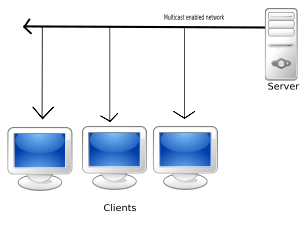
- Image via Wikipedia
Last week, TNL.net did some analysis of how the top streaming video services were doing in terms of the most popular video entertainment of 2010. They compared Netflix, Hulu Plus, Amazon Video-on-Demand, and iTunes.
Looking at the top 50 TV shows of 2010, the results were not promising. Current seasons of shows are a strength for Hulu Plus, and a weakness for Netflix. Out of these top fifty shows, Netflix offered partial content from 10 of them, Hulu 18, Amazon 31, and iTunes 41. Bear in mind that Amazon and iTunes are pay-per-episode models, which may allow them to secure more content. For current offerings, that would include the last or current season of shows, those numbers dropped to Netflix 2, Hulu 12, Amazon 28, and iTunes 39.
How did movies measure up? Checking out the top 100 box office hits of 2010, Netflix offered 10 of them, Amazon 48, iTunes 46, Vudu 46, and 74 of them are out on DVD. We haven’t discussed iTunes or Vudu yet, as we do not have devices capable of using them, but we will cover them in the future. This is not very surprising though, that a per-rental model is one that studios would prefer to an unlimited use model.
Beyond that, Amazon, iTunes, and Vudu offer an ownership model, although Amazon specifically allows you to buy something they might subsequently take away, as we mentioned when we discussed the service. Ownership means, theoretically, you can stream the title whenever you want…for the rest of your life, or the life of the service, whichever comes first. Even more titles are available on this basis.
The gap between what is available on disc, and what you can stream is closing, but it is likely the rental or the purchase models will see more adoption by the studios than the unlimited consumption models. What we are lacking are streaming models that resemble the offerings of TV stations. Would you subscribe to a service that offered a limited selection of streaming content that rotated each month, but by doing so, allowed you ultimate access to more content over the year, for example?
Specialty streaming subscriptions may be the future in this regard. It won’t happen this way, but would you subscribe to a month of instant SyFy channel, where it would give you all the movies/TV shows scheduled to air on the SyFy channel for the next month, and change on a month to month basis? Or any other cable channel?
What do you think the future of streaming is? What will companies try?
Related articles
- Downstreaming: Amazon Video on Demand (gadgetwisdom.com)



